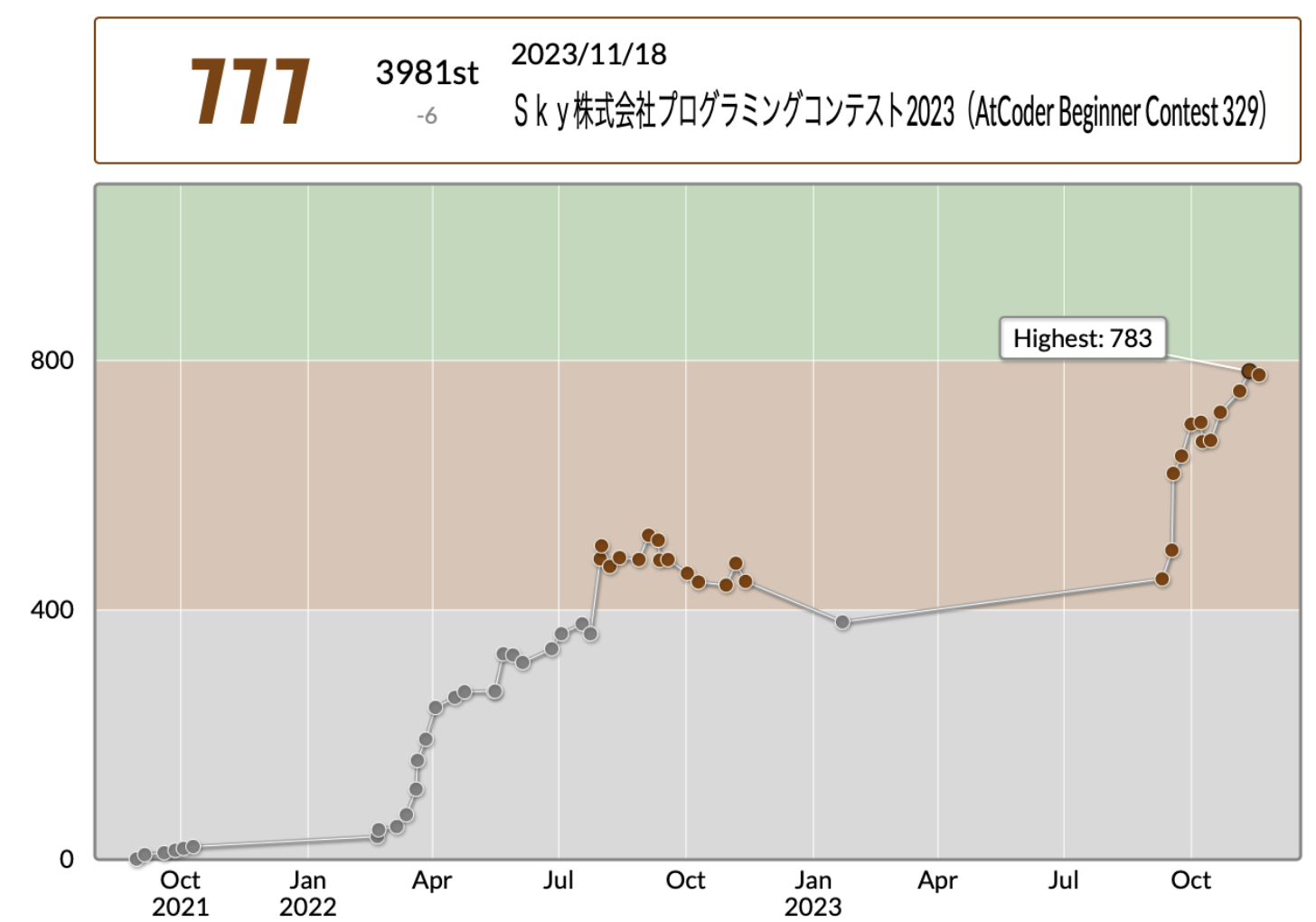記事構成
1. Atcoder自己紹介
2. 各問題の感想と提出コード
3. 今回の結果想
4. 最後に
1. Atcoder自己紹介
- 茶色🟤コーダー
- 主な使用言語:Python,C++(C++は最近使ってません)
- 一時期休んでたけど最近再開
- 本コンテスト終了時のグラフ↓
2. 各問題の感想とコード
A問題
特にいうこと無し.ABCのAって感じの問題が久しぶりに来た
コードは結構綺麗に書けたんじゃないかな
A問題
s = input()
for char in s:
print(char, end=' ')
B問題
一回最大値探してからもう一回走査.
2番目引き出す関数あるのかな?
A,B問題用にリスト内のn番目の最大値(最小値)返す関数は作っても良いかも
B問題
n = int(input())
a = list(map(int, input().split()))
maxn = max(a)
second_max = max([x for x in a if x != maxn])
print(second_max)
C問題
2回TLE使っちゃった.
やっぱり事前の点数を元に思考しちゃうの良くないな.
雑に実装すれば解けると思っちゃった
C問題
n=int(input())
s=input()
abc = [0] * 26
count, cx = 1, ord(s[0]) - ord('a')
for i in range(1, len(s)):
if s[i] == s[i - 1]:
count += 1
else:
abc[cx] = max(abc[cx], count)
count = 1
cx = ord(s[i]) - ord('a')
abc[cx] = max(abc[cx], count)
result = sum(abc)
print(result)
D問題
問題解いてるときは,一旦Cを諦めてこっちに移行
正直こっちの方が変に考えることないから楽だった
D問題
def ele(N, M, votes):
v = [0] * (N + 1)
c = 0
results = []
for i in range(M):
v[votes[i]] += 1
if v[votes[i]] > v[c] or (v[votes[i]] == v[c] and votes[i] < c):
c = votes[i]
results.append(c)
return results
n,m = map(int, input().split())
a = list(map(int, input().split()))
result = ele(n, m, a)
for i in result:
print(i)
3. 今回の結果
今回はこんな感じ.下がっちゃったね
次回緑行きたいな〜
4. 最後に
公式ドキュメントを読む,的な記事を書きたい

